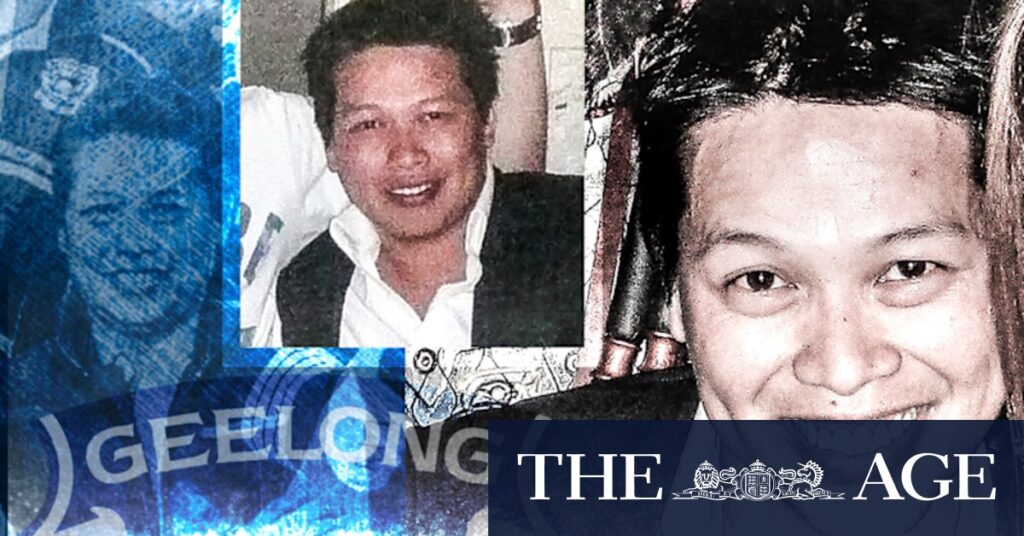
Sy Giang Nguyen, once a respected IT operations manager at genU, now finds himself at the center of a scandal that has rocked the Australian charity sector. Allegations have surfaced that Nguyen, in collusion with Geelong businessman Keith Greenwood, siphoned up to $14.5 million from the charity by purchasing or leasing thousands of IT products that were never delivered, as detailed in court documents.
This revelation comes after Nguyen and Greenwood agreed to pay nearly $6 million to genU, a not-for-profit organization that accused them of orchestrating a massive fraud. The civil claim, filed in the Supreme Court of Victoria last year, has brought Nguyen’s double life into sharp focus, highlighting his connections with prominent sporting and corporate figures.
The Rise and Fall of a Charity Worker
Nguyen’s journey from a Vietnamese refugee in the early 1970s to a well-connected charity worker and benefactor of the Geelong Football Club is a story of ambition and deception. Over two decades, Nguyen cultivated relationships with some of Australia’s most prominent figures, gaining access to exclusive venues like a private villa at Crown casino and becoming a generous supporter of the Geelong Cats.
However, Nguyen’s carefully curated worlds began to unravel when genU detected suspicious transactions in 2021. Greenwood’s business, Ryrie Office Machines, was implicated in oversupplying and overcharging for IT hardware and software ordered by Nguyen. The fallout from these allegations has been significant, with both men remaining under police investigation.
Connections and Consequences
Nguyen’s ties to the Geelong Football Club run deep, with his involvement extending beyond financial backing to social coordination and friendships with some of the club’s greatest players. His network also included connections with other sports stars, such as tennis player Bernard Tomic and NBA star Andrew Bogut. Despite these relationships, there is no suggestion of wrongdoing by the players or the club.
Nguyen’s lavish lifestyle, funded by his alleged fraudulent activities, included luxurious living arrangements at Crown casino, where he enjoyed the company of high-profile individuals. His connections with Crown Resorts management were strong, yet the reasons behind the casino’s generosity towards him remain unclear.
Legal and Personal Repercussions
The ongoing investigation into Nguyen and Greenwood’s activities has not only impacted their professional lives but also their personal relationships. Nguyen’s long-term partner recently discovered his infidelity and the existence of another family in Geelong. This revelation has prompted her to pursue legal action to recover a debt of over $800,000, which she claims Nguyen owes her.
Nguyen’s alleged fraudulent activities have also drawn scrutiny to his business ventures, including a company he registered to develop concussion-detecting mouthguards. The legitimacy of these ventures is now under question as part of the broader investigation.
The Future of genU and the Broader Implications
Despite the scandal, genU remains committed to its mission of providing services to the most vulnerable. The organization, one of the largest service providers for the National Disability Insurance Scheme, continues to operate with 5,500 staff members. CEO Clare Amies has assured stakeholders that the alleged fraud has not impacted their ability to deliver essential services.
The case against Nguyen and Greenwood highlights the vulnerabilities within charitable organizations and the importance of robust financial oversight. As the investigation unfolds, it serves as a cautionary tale for other not-for-profits to strengthen their governance structures to prevent similar incidents.
“I’m relieved, it’s a good outcome for genU. But we will now pursue other parties, and we will continue to work with Victoria Police,” said Clare Amies, CEO of genU.
As Nguyen’s once-gilded lifestyle comes to an end, the broader implications for the organizations and individuals involved continue to unfold. The case serves as a stark reminder of the potential for deception within trusted circles and the need for vigilance in safeguarding charitable resources.







